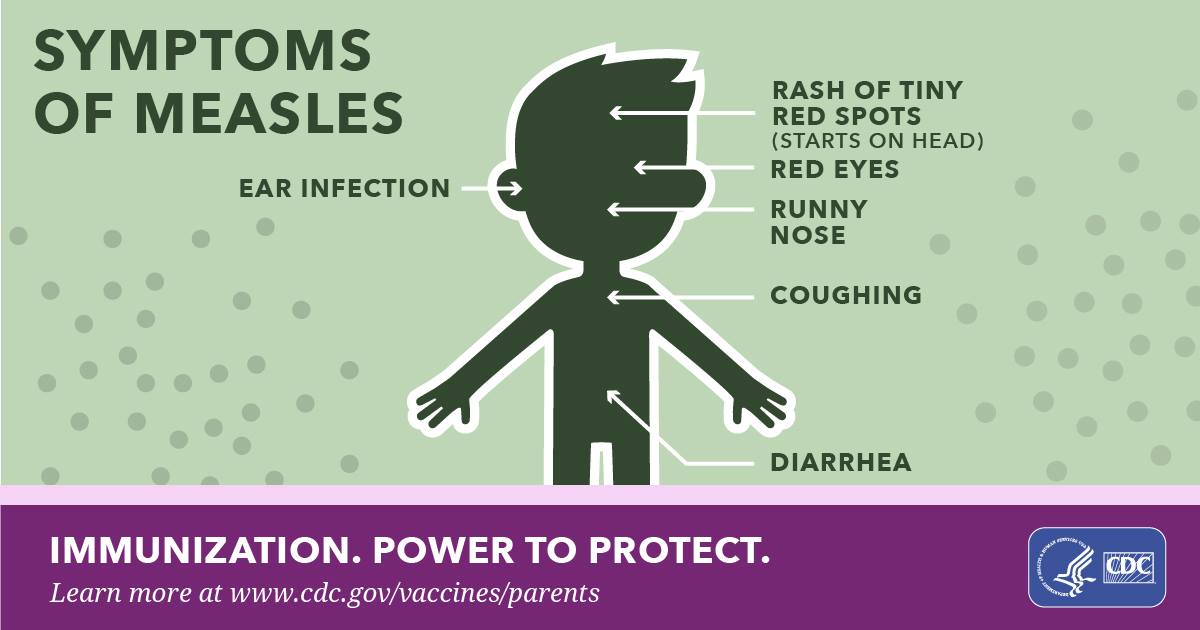Measles: Know the Signs and Protect Against Outbreaks
Measles is a highly contagious viral infection that can have serious health implications, especially for young children. Despite being preventable through vaccination, measles continues to affect many individuals worldwide. At Brevard Health Alliance, we believe in the importance of education and immunization to protect you, your loved ones, and our community’s health.
What is Measles?
Measles is an infection caused by the measles virus, a member of the paramyxovirus family. It is primarily transmitted through respiratory droplets when an infected person coughs or sneezes. According to the Centers for Disease Control and Prevention (CDC), the virus can remain infectious in the air or on surfaces for up to two hours after an infected person leaves the area. Due to it being so contagious, measles can spread rapidly, particularly in environments where people are in close contact, such as schools, childcare centers, and healthcare facilities.
“90% of those susceptible to measles with a close contact will be infected,” explains Brevard Health Alliance’s Chief of Pediatrics, Dr. Wendy Lockhart. “In contrast, influenza has a 20-50% transmission rate and COVID has a 50-70% transmission rate.”
Signs and Symptoms of Measles
Measles typically begins with a high fever, which starts about 10-12 days after exposure to the virus and lasts 4-7 days. The World Health Organization (WHO) states that early symptoms include:
- Runny nose: This is often one of the first symptoms to appear and is similar to a common cold.
- Cough: A persistent, dry cough accompanies other symptoms.
- Red and watery eyes (conjunctivitis): The eyes may become red, inflamed, and sensitive to light.
- Small white spots inside the mouth: These are tiny white spots with bluish-white centers found inside the mouth on the inner lining of the cheek. They are a distinctive sign of measles and appear 2-3 days after the initial symptoms.
After these initial symptoms, the rash typically appears around 14 days after exposure (3-5 days after the onset of fever). The rash usually starts on the face and upper neck and gradually spreads downward to the rest of the body, including the hands and feet. The rash lasts for 5-6 days before fading away. Other symptoms that may accompany the rash include a high fever, loss of appetite, and fatigue.
“Because measles may initially look like many other viral illnesses, international travel or local measles cases should alert parents to look for typical symptoms,” shares Dr. Lockhart. “Initially, the red, watery eyes and the small white spots in the mouth would be present before the rash. Unfortunately, the rash is a late symptom.”
Effects of Measles
Measles can lead to severe health complications, particularly in young children, pregnant women, and individuals with weakened immune systems. According to the CDC, these complications include:
- Pneumonia: This is the most common cause of death in young children with measles. It can be a direct result of the measles virus or secondary bacterial infections.
- Encephalitis: This is a serious complication that involves swelling of the brain, occurring in about 1 in 1,000 cases of measles. It can lead to convulsions, hearing loss, and intellectual disabilities.
- Severe Diarrhea and Dehydration: These can be particularly dangerous for young children and can lead to hospitalization.
- Blindness: Measles can lead to severe eye infections and, in extreme cases, blindness.
- Ear Infections: These are common and can result in permanent hearing loss.
In pregnant women, measles can cause miscarriage, preterm labor, and low birth weight. Complications are more likely and more severe in malnourished children and those with weakened immune systems, including individuals with HIV/AIDS.
“Pay attention to outbreaks in your community and follow the recommendations of the health department and CDC. Your primary care provider can be a resource for current recommendations also. Exclusion from school, childcare and healthcare settings may be recommended for those who are high risk,” adds Dr. Lockhart.
Suspect Measles?
If you suspect your child may have measles call your health care provider or county health department and let them know your concerns. DO NOT go directly to your health care provider’s office or the county health department.
A health care provider or a county health department official will give you instructions on getting seen in a timely manner, and how you can avoid exposing others to measles.
Treatment Options for Measles
There is no specific antiviral treatment for measles, explains the American Academy of Pediatrics. The management of measles primarily involves supportive care to relieve symptoms and address complications. Key treatment options include:
- Rest and Hydration: Patients are encouraged to get plenty of rest and stay hydrated by drinking fluids.
- Fever Management: Over-the-counter medications such as acetaminophen (Tylenol) or ibuprofen (Advil) can help reduce fever and relieve pain. Aspirin should not be given to children with viral infections due to the risk of Reye’s syndrome.
- Vitamin A Supplements: The World Health Organization (WHO) recommends vitamin A supplementation for all children diagnosed with measles, as it can help reduce the severity of the disease and prevent complications. This is particularly important in areas where vitamin A deficiency is common.
- Antibiotics: These may be prescribed if secondary bacterial infections, such as pneumonia or ear infections, occur.
- Isolation: To prevent the spread of the virus, infected individuals should be isolated from others, particularly those who are unvaccinated or have weakened immune systems, until they are no longer contagious (typically four days after the rash appears).
The Importance of Immunizations
Vaccination is the most effective way to prevent measles. The Measles, Mumps, and Rubella (MMR) vaccine is safe and effective, providing long-lasting immunity against measles. The CDC recommends that children receive two doses of the MMR vaccine:
- First dose: Administered at 12-15 months of age.
- Second dose: Administered at 4-6 years of age.
Measles in Florida
Florida has experienced measles outbreaks in recent years. According to the Florida Department of Health, the state has seen sporadic cases of measles, underscoring the importance of maintaining high vaccination coverage. These outbreaks highlight the need for continued awareness and public health efforts to promote immunization.
In Florida, vaccination requirements for school entry have played a crucial role in controlling the spread of measles. However, vaccine exemptions for medical, religious, or personal beliefs can pose challenges to achieving herd immunity, which is when many people are immune to (protected from) a contagious infection, it’s harder for that infection to spread in a community.
At Brevard Health Alliance, we are available to answer any questions or provide additional education on measles and available vaccination options to ensure you make the best decision for yourself and your family. Call or text 321-241-6800 for more information or visit www.Brevardhealth.org today.
 Wendy Lockhart is our Chief of Pediatrics and a Board Certified Pediatrician providing care to our young patients. She holds a Doctor of Medicine Degree from the University of South Florida.
Wendy Lockhart is our Chief of Pediatrics and a Board Certified Pediatrician providing care to our young patients. She holds a Doctor of Medicine Degree from the University of South Florida.

















































































































































